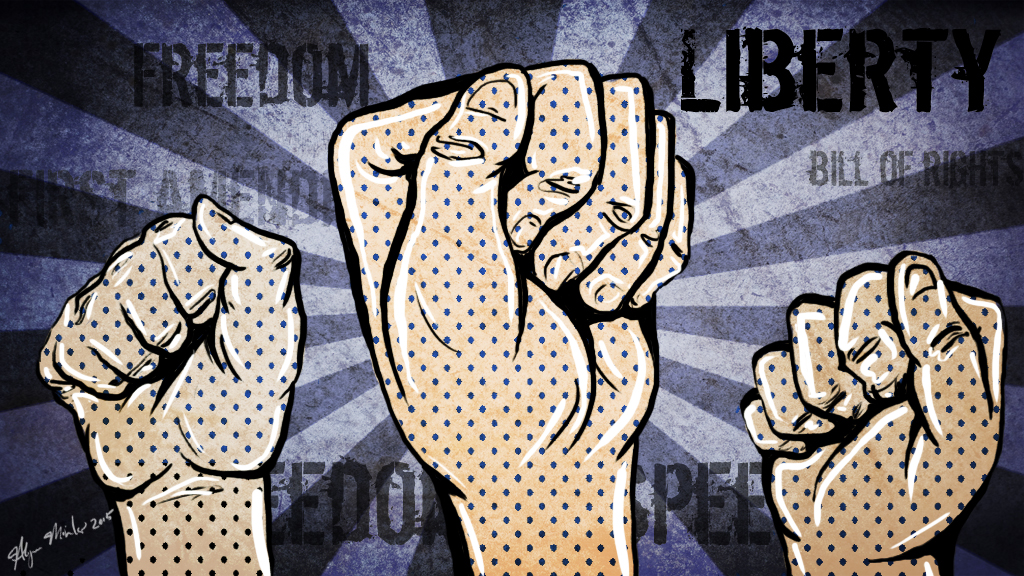I am a firm believer in the First Amendment. This should come as no surprise from a left-wing student journalist, but I figured I should put my cards on the table. There is a marked difference between citing First Amendment privilege when it comes to one's own speech and citing First Amendment privilege when it comes to free speech for all, even when you do not agree with what is being said.
Towards the end of August, fraternities at Old Dominion University (ODU) and The Ohio State University (OSU) came under fire for some admittedly crude banners displayed at their off-campus fraternity houses. All of the banners in question were targeted towards incoming female freshmen students. The banners all implied that freshmen girls could be dropped off at the fraternity houses, presumably for sexual purposes. Administrators at ODU and OSU put forth statements condemning the actions of the fraternities and implying that action will be taken against the student(s) responsible for the offensive messages, citing violation of respective university policies.
Both ODU and OSU are public universities. At public universities, administrators cannot dictate what can be said on or off campus. These universities are publicly funded and its members have full First Amendment rights. Having policies in place that restrict speech, or taking action against students for something they say is a direct violation of the First Amendment and should not be tolerated.
Counteracting this interpretation is an article entitled
Per the report unprotected speech includes: obscenity, child pornography and "speech that constitutes so-called "fighting words" or "true threats." The banners exhibited by the fraternities at ODU and OSU do not fall into any categories defined above.
In a report published on the The Federation of American Scientists website, categories of speech are split between protected speech and unprotected speech. Categorical examples are all cited and backed by SCOTUS cases. Per the report unprotected speech includes: obscenity, child pornography and "speech that constitutes so-called "fighting words" or "true threats." The banners exhibited by the fraternities at ODU and OSU do not fall into any categories defined above.
These banners are not obscene. The banners did not say "DROP YOUR DAUGHTER OFF HERE SO I CAN HAVE SEX WITH HER." Any obscenity is purely in the eyes of the beholder based on interpretation of the verbiage. Furthermore, college campuses are generally viewed as sex-positive environments. Talking about sex is in no way taboo.
These banners are not child pornography.
These banners are not fighting words, nor are they true threats. In fact, there were no specific or direct verbal threats to any one person because any form of action is implied. A banner that says "Hope your baby girl is ready for a good time," can easily be argued to be interpreted as a whole host of different things. It is all up to the person who is reading it.
The only argument left against these banners is that they make other students uncomfortable. I personally think these banners are highly offensive. They show poor judgement on the part of the fraternities and reflect poorly on the parent organizations. What individuals think about the messages portrayed or what they interpret the banners to imply is simply irrelevant. We are talking about the actions of private citizens on private property who are students at publicly funded universities. Punishing students for their words is unconstitutional and simply should not be allowed.
The Constitution guarantees American citizens the right to free speech, it does not guarantee the right to a politically correct environment. What people may think of this is their own opinion, one they are permitted to have and express courtesy of the First Amendment.








